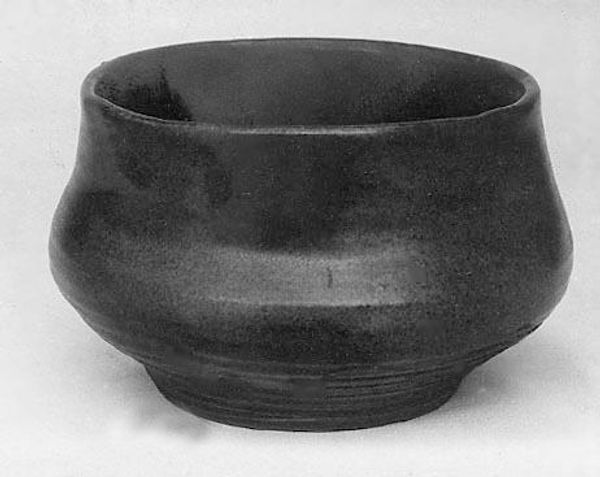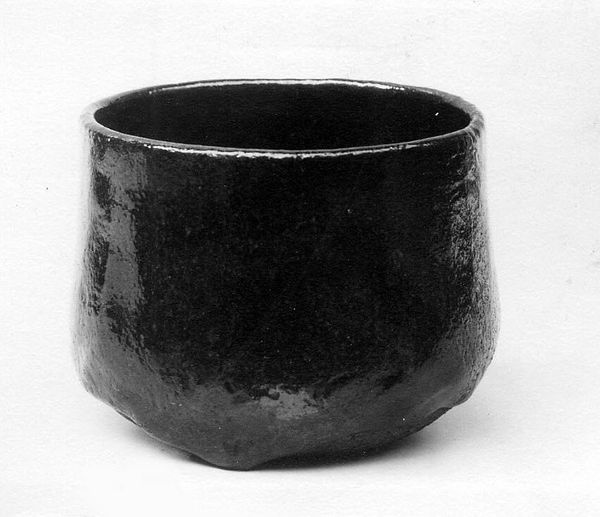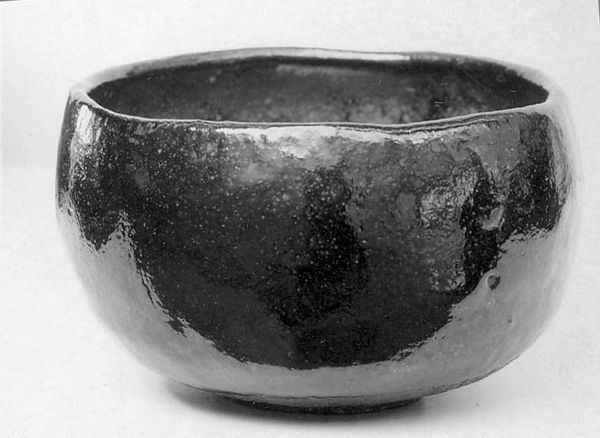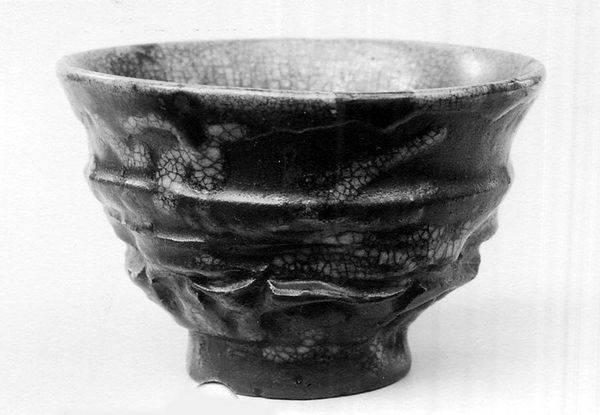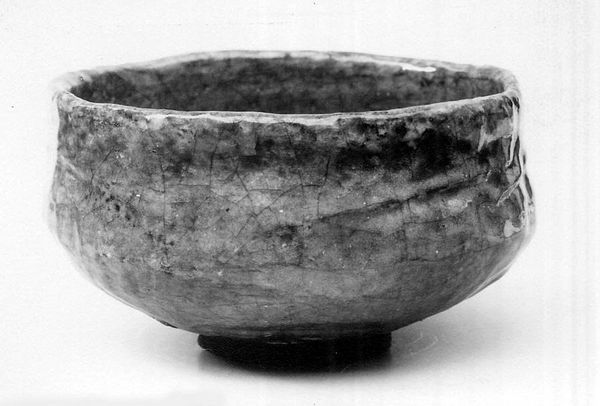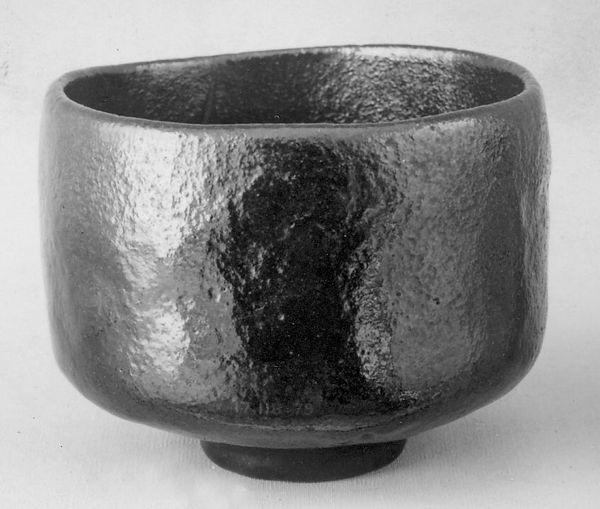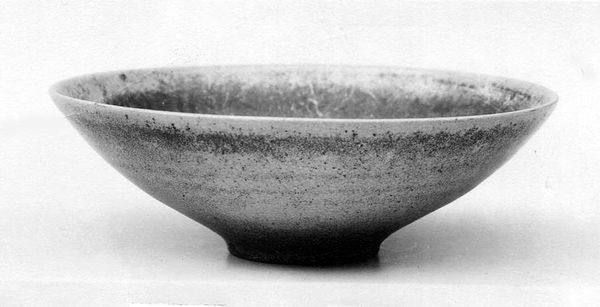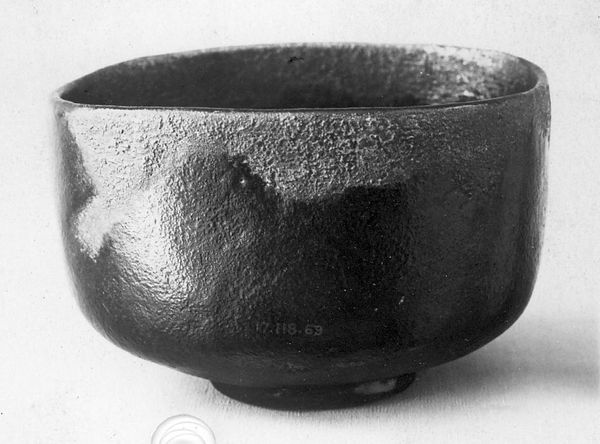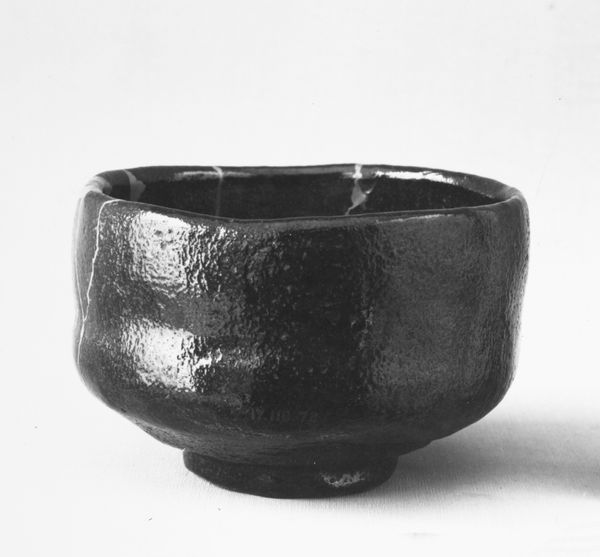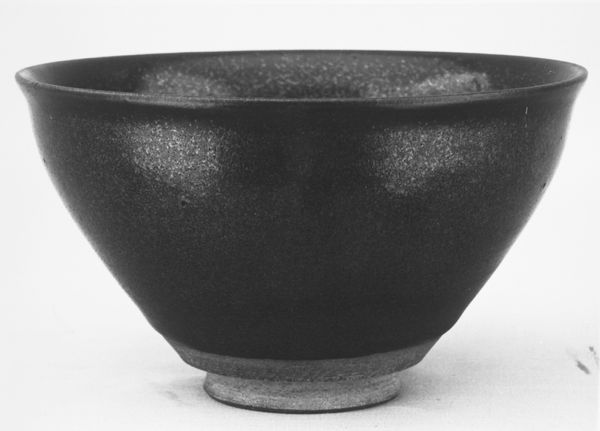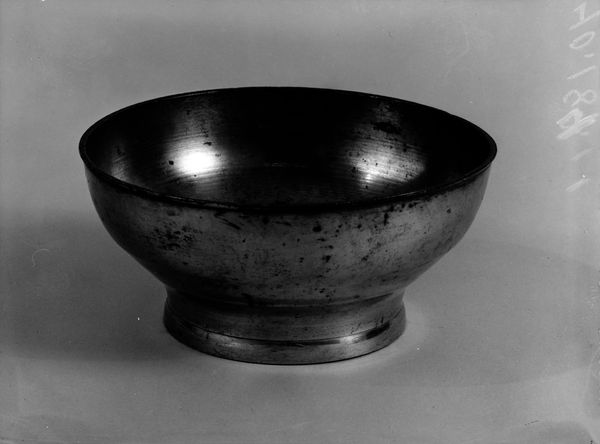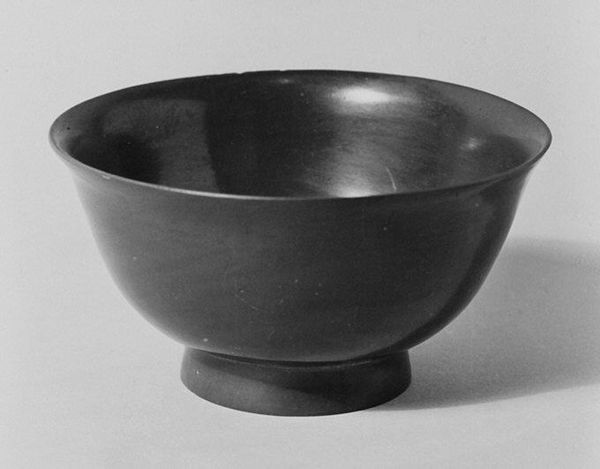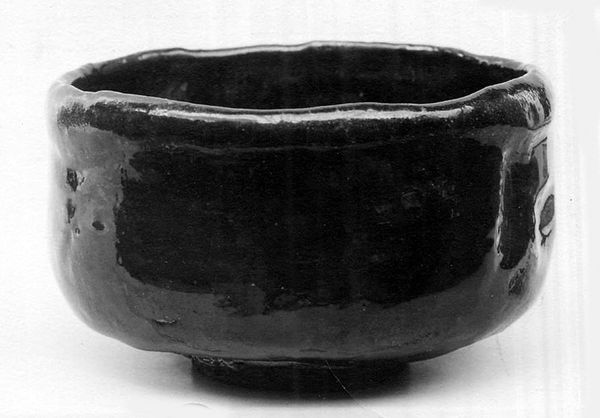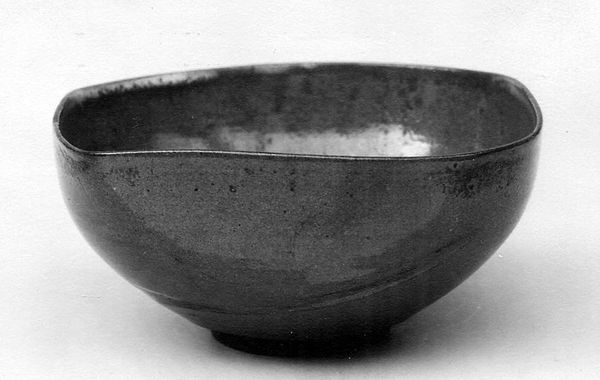
ceramic, earthenware, wood
#
asian-art
#
ceramic
#
earthenware
#
stoneware
#
wood
Dimensions: H. 3 1/8 in. (7.9 cm); Diam. 4 5/8 in. (11.7 cm)
Copyright: Public Domain
This is a teabowl made by Sashu Kintaro, and it resides here at the Metropolitan Museum of Art. As a functional object elevated to an art form, this teabowl invites us to consider the rich history of Japanese tea culture. Tea ceremonies are deeply intertwined with identity, embodying principles of harmony, respect, purity, and tranquility. Note how the bowl is not perfectly symmetrical. This aligns with the aesthetic of wabi-sabi, which values imperfection and impermanence. Wabi-sabi embraces asymmetry and simplicity, as opposed to Western ideals of beauty that often prioritize symmetry, perfection, and complexity. This teabowl transcends its functionality. It becomes a vessel for contemplation and a reflection of Japanese cultural values. It is a reminder that beauty can be found in the simplest of forms, and that true artistry lies in embracing the imperfect nature of life.
Comments
No comments
Be the first to comment and join the conversation on the ultimate creative platform.
